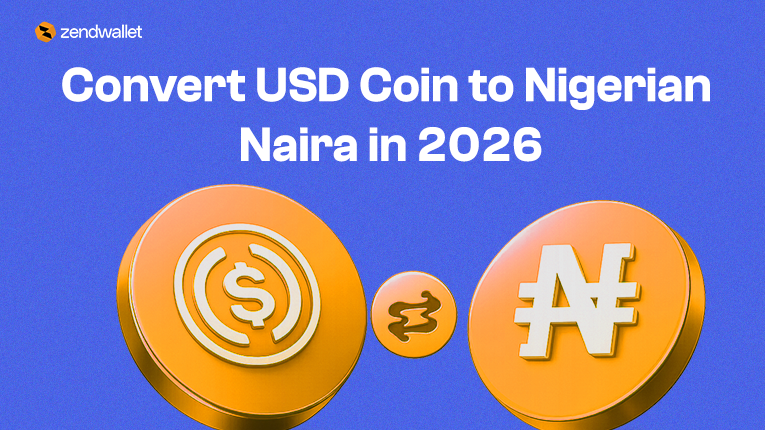South Africa is one of the fastest-changing markets for digital work and online income. If you want to know how to make money online in South Africa, this guide outlines the realistic options, how to start with little to no cash, where people earn the most, and how to scale from a side income into a full-time business.
Key facts up front
According to Reuters, South Africa’s online retail market is projected to exceed 130 billion rand in 2025.
According to Grand View Research, South Africa’s freelance platform market is experiencing rapid growth, marked by substantial revenue increases and a rising need for remote expertise.
According to The Business Research Company, Online tutoring and e-learning are expanding globally with strong growth in 2024 and 2025.
Also, Crypto and digital currency usage in Sub-Saharan Africa is expanding quickly and is part of the ways people receive and store value online.
Why online income works in South Africa right now
If you’re looking for how to make money online in South Africa, now is the perfect time. More businesses are selling online, and companies are hiring remote talent at a record pace. Consumers increasingly shop and pay digitally, creating demand for services, content, teaching, product supply, and payment solutions. If you can offer value that solves a real problem, you can earn online often from the comfort of your home.
How to make money online in South Africa for free or Without Money

Below are the realistic options ranked by accessibility and typical income potential. Each section explains How to make money online in South Africa.
1. Freelancing and remote work
Freelancing and remote work are one of the ways to make money online. Offer skills on a project basis to local or global clients. Popular services include writing, design, web development, digital marketing, virtual assistance, accounting and translation.
Create profiles on freelance marketplaces, build a simple portfolio, pitch for small gigs, deliver great work and collect testimonials.
Upwork, Fiverr, Freelancer, and Toptal for international clients. Local tech job boards and marketplaces include OfferZen and NoSweat Work. Use LinkedIn to network and show your portfolio.
Beginners can earn from a few thousand rand per month. Skilled specialists in tech and design can scale from 30,000 rand to 100,000 rand per month or more.
Companies globally prefer hiring contractors to fill gaps quickly. With good English and reliable delivery, you can access clients paying in dollars or other strong currencies.
For platform-level data on the freelance economy, see Upwork
2. Online tutoring and teaching
Teach academic subjects, languages or vocational skills to students online. This can be on one-on-one tutoring, group classes or pre-recorded courses.
Pick subjects you know well, list your services on local and global platforms, offer a trial session and collect reviews.
Preply, Cambly, Teach Me 2, Superprof, Outschool. For self-hosted courses, use Gumroad, Teachable or a Substack-style paid newsletter.
Typical tutor rates range widely. In South Africa, many tutors charge between 150 rand and 350 rand per hour. Specialist subjects and language teaching to international students can pay more. Global market research shows strong growth in online tutoring demand and revenue has been one of the ways to make money online. The Business Research Company
3. Content creation and monetising hobbies
Create blogs, videos, newsletters or podcasts and earn through ads, sponsorships, affiliate links and product sales, are also one of the best ways to make money online.
Choose a niche you can talk about often, publish consistently and promote on social media. Start small by repurposing one idea across short videos, a blog post and a newsletter.
YouTube Partner Program, sponsored posts, affiliate programs, direct product sales and membership platforms like Patreon or Buy Me a Coffee.
The early months are slow. With persistence, you can scale from small monthly earnings to a reliable income stream. Top creators earn substantially more.
Simple tasks, micro jobs and surveys
What it is: Earn small amounts for micro tasks like surveys, testing apps or short data work.
How to start: Join vetted platforms, complete profile checks, and apply for tasks that match your skills.
Typical platforms: Swagbucks, Mobrog and local survey panels. Expect modest income. These tasks are suitable for pocket money but not for building a full-time income.
4. E-commerce, reselling and dropshipping
Sell physical products online. Dropshipping removes inventory risk by shipping from suppliers directly to customers. Pure e-commerce with stock gives more control and higher margins.
Test a product idea, pick a sales channel and run small ad campaigns to validate demand.
Takealot Marketplace, Bob Shop, and Shopify for your own store. Use local logistics partners to manage shipping.
It can scale from a modest side income to a substantial business. Requires upfront investment and consistent marketing.
5. Crypto trading, staking and digital currency earning
Buying and selling crypto for price moves, staking assets to earn yield, or using digital currencies as a source of payments.
Learn the basics first. Use reputable exchanges and custodial providers. Never invest more than you can afford to lose.
Crypto trading can be volatile and benefits from education and risk management. Staking can produce yields but carries value risk and lock-up constraints.
Crypto and digital currency usage across the region has grown strongly. People use digital currency for remittances and value preservation as part of the broader digital economy.
Use a trusted exchange like Zendwallet and keep security practices up to date.
Related: How to Buy Bitcoin in South Africa.
6. Simple Tasks, Micro Jobs and Surveys
You earn small amounts of money by completing micro-tasks online. These tasks can include filling out surveys, testing new apps or websites, tagging images, transcription, categorising data, or even writing short reviews. Companies and researchers use these platforms to outsource small tasks at scale.
How to start:
- Sign up on at least 2–3 reputable platforms to get more task options.
- Complete your profile fully (skills, demographics, payment details) — many platforms use this data to decide which tasks you see.
- Start with small tasks to build up your approval rating. As your rating improves, you’ll qualify for higher-paying tasks.
- Keep a spreadsheet to track which platforms pay better and when payments are due.
Platforms:
- Swagbucks – Surveys, cashback, and micro-tasks.
- Mobrog – Paid surveys popular in South Africa.
- Clickworker / UHRS – Data tagging, text creation, product categorisation.
- Appen – App testing, speech and image annotation.
- Local survey panels like Panel Station or Toluna.
Earnings:
- Surveys: R5–R50 per survey, depending on length.
- Micro tasks: R10–R150 per hour, depending on the platform and your speed.
- Good for pocket money or covering small bills, but not a replacement for full-time work.
Tips:
- Stack multiple platforms to keep your task pipeline full.
- Watch for referral or sign-up bonuses.
- Cash out earnings early to avoid inactive-account forfeiture.
- Use your downtime (commuting, lunch breaks) to do tasks on your phone.
7. Affiliate Marketing
You promote other people’s products or services online and earn a commission whenever someone buys through your special link, this is the one of the ways to make money online in Africa.
This can be physical products (Takealot, Amazon), digital courses, software subscriptions, or even financial services.
How to start:
- Pick a niche you know or care about (fitness, gadgets, finance, home décor, etc.).
- Join affiliate programs in that niche — sign-up is usually free.
- Create content (blog posts, Instagram reels, TikTok videos, newsletters, or even WhatsApp broadcast lists) around problems your audience faces and include your affiliate link as the solution.
- Focus on honest recommendations; people buy from those they trust.
- Track clicks and sales using the platform dashboard to see what’s working.
Platforms:
- Amazon Associates – International physical products.
- Takealot Affiliates – South African shoppers.
- Commission Junction (CJ), Impact, ClickBank – Variety of global merchants.
- Direct brand programs – Many South African banks, insurance, or software companies run their own affiliate programs.
Earnings:
- Beginners: a few hundred rand a month from small commissions.
- Intermediate marketers: R3,000–R15,000/month by building traffic.
- Skilled marketers with a large audience: tens of thousands or six figures monthly.
- Commission rates vary (2% for some physical products to 30–70% for digital products).
Tips:
- Focus on evergreen content (guides, reviews, “best of” lists) that continues to bring in traffic.
- Build an email list — email converts far better than social media alone.
- Don’t spam links; add value first.
- Test different products and see which converts better.
8. Virtual Assistance (VA) and Admin Support
You can make money online by providing remote administrative, social media, email management, customer service, research, or bookkeeping support to entrepreneurs, coaches, or small businesses who don’t want to hire full-time staff.
How to start:
- List all the admin tasks you’re good at (calendar management, data entry, email replies, travel booking, research, invoicing).
- Create a simple one-page profile or website highlighting your services and pricing.
- Offer a discounted “trial package” (e.g., 10 hours at a set rate) to your first few clients in exchange for testimonials.
- Specialise if possible (e.g., “I’m a VA for real estate agents” or “I help coaches with email and scheduling”). This makes you stand out and charge more.
- Use time-tracking apps like Toggl or Clockify to bill accurately.
Platforms:
- Upwork – Global VA clients.
- Belay, Time etc., Zirtual – Dedicated VA networks.
- LinkedIn and Facebook groups – Pitch small business owners directly.
- Local entrepreneur communities like Startup Grind, Future Females SA.
Earnings:
- General VA work: R100–R200 per hour.
- Niche VA work (bookkeeping, social media, project management): R200–R400 per hour.
- Monthly retainers often start at R3,000–R8,000 per client.
Tips:
- Offer packages (e.g., 20 hours/month for a set fee).
- Highlight reliability and confidentiality.
- Upsell additional services like social media or email marketing once trust is built.
9. Print-on-Demand (POD) and Digital Products
You can also make money online in south africa design products (t-shirts, mugs, tote bags) or create digital downloads (planners, templates, e-books, printables) and sell them online without holding inventory. POD services handle printing and shipping; digital marketplaces deliver files automatically.
How to start:
- Create simple but attractive designs in free tools like Canva or Photopea.
- Upload designs to POD marketplaces — they handle production and fulfilment.
- For digital products, create PDFs, spreadsheets, or templates that solve specific problems (meal planners, budgeting templates, CV designs).
- Use social media or Pinterest to drive free traffic to your listings.
- Start small — 5–10 products — and test which ones sell before adding more.
Platforms:
- Redbubble, Teespring, Printify – Print-on-demand apparel and accessories.
- Etsy – Digital downloads and POD products.
- Creative Market, Canva Templates Marketplace – Sell design templates.
Earnings:
- Passive side income: R500–R2,000/month at first.
- Scaled stores or viral designs: R10,000+ monthly.
- Digital downloads can be more profitable as there’s no cost per unit sold.
Tips:
- Target niches or communities with passion (sports fans, hobbies, professions).
- Use keywords in your titles/descriptions for better search visibility.
- Keep designs simple; “clever text” t-shirts often sell as well as intricate art.
10. Social Media Management or Growth Services
How to make money online in South Africa, You manage a company’s social media presence — creating posts, writing captions, scheduling content, engaging with followers, running small ad campaigns, and reporting on performance. Many small businesses can’t hire full-time marketers but need consistent online activity.
How to start:
- Use your own social profiles as a portfolio — show you can grow and engage an audience.
- Offer a starter package to small businesses (e.g., 12 posts/month + community management).
- Learn basic graphic design (Canva), copywriting, and scheduling tools (Buffer, Meta Business Suite).
- Position yourself as someone who delivers results — more followers, better engagement, or actual leads.
- Upsell ads management once the business trusts you.
Platforms:
- Direct outreach to small businesses on LinkedIn, Instagram DM, or Facebook groups.
- Freelance platforms like Upwork or Fiverr.
- Local directories for marketing freelancers.
Earnings:
- Starter packages: R3,000–R5,000 per month per client.
- Intermediate: R7,000–R15,000 per month per client.
- Advanced with ad management and strategy: R20,000+ per client.
Tips:
- Define deliverables clearly (e.g., “12 posts/month, 3 stories/week”).
- Show before-and-after metrics to build credibility.
- Focus on industries you understand (restaurants, beauty salons, e-commerce) to create more relevant content.
You can also Read: What Currency Does South Africa Use in 2025? Convert USDT to ZAR on ZendWallet Using ZendFX
Practical examples of How to make money online in South Africa
A web developer offers three small packages on Upwork and scales to one full time retainer contract after three months.
A language tutor lists on Cambly and Preply and collects regular students at 200 rand per hour.
A content creator focuses on a tight niche and monetizes with affiliate products and a small paid newsletter.
Regulatory and payment practicalities to make money online in South Africa
Payment methods matter. Many international platforms pay by PayPal or bank transfer. For local withdrawals, look into PayMerchant options and South African friendly payout services.
When accepting digital currencies such as USDT and USDC, it’s essential to use trusted platforms like Zendwallet. Always implement strong security measures, including two-factor authentication and secure storage of your seed phrase.
Taxes and legal points on How to make money online in South Africa
Income earned online is taxable in South Africa. Keep records of income, invoices and platform payouts. Consult a tax advisor to register correctly and to claim allowable expenses.
Final practical checklist to get started today
Pick one route to focus on for 30 days and track results. Build a basic online presence and pitch for five jobs each week. Collect reviews and reinvest earnings into skills or basic marketing.
If you are starting with zero cash, focus on freelancing, tutoring or content creation. If you have a small amount of capital, consider an e-commerce pilot or paid marketing for your service shop.
What to do to earn money in 2025
In 2025, the online earning opportunities that are performing best are the ones that combine a skill you already have with platforms that pay in strong currencies. Instead of chasing quick cash, think about services or digital assets you can offer repeatedly. This includes freelancing such as writing, design, digital marketing or coding, online tutoring, managing social media for small businesses, selling digital products and affiliate marketing. Even small niches like helping businesses with WhatsApp marketing or creating Canva templates can bring consistent income if you build a routine and market yourself well.
How to make R500 a day in South Africa online
R500 a day, which is about R15000 a month, is realistic if you pick one or two income streams and stick to them. A few examples are freelancing, where offering your skills on Upwork, Fiver,r or LinkedIn can quickly reach R500 or more per day once you get regular clients.
A single blog post, a logo or a batch of social media posts can pay that much or more. Online tutoring at R150 to R350 per hour means just two to three sessions a day can give you R500.
Virtual assistance or social media management with clients on monthly retainers can easily average R500 per day. Affiliate marketing or digital products take longer to set up, but one or two sales of a high-ticket product or a popular digital download can hit R500 in a day.
The key is to pick one you can start right away, build a profile or portfolio and consistently pitch or post content. Most people who cross the R500 per day mark online did it by showing up every day for a few weeks or months and not by one-off gigs.
Is there a way to make money online in South Africa
Yes, South Africans are already earning online every day. The most accessible ways to make money online in South Africa 2025 include selling your time and skills through freelancing, tutoring, or virtual assistance; selling your knowledge with courses, coaching, or digital downloads; monetizing your audience through affiliate marketing, content creation, or social media; selling products without stock via dropshipping or print-on-demand; and completing micro tasks for extra income.
With growing internet penetration, improved payment gateways, and global platforms, it’s easier than ever to make money online in South Africa in 2025, get paid in rand or dollars, and withdraw directly to your bank account.
What will make the most money in 2025
High earners in 2025 know how to make money online by focusing on three strategies. Skilled freelancing or consulting in marketing, tech, copywriting, and design remains top, especially with international clients paying in USD. Building and monetizing audiences through YouTube, TikTok, newsletters, or Instagram, combined with affiliate products, sponsorships, or digital products generates consistent income.
Leveraging digital assets like templates, online courses, or apps sells repeatedly with minimal effort. Crypto trading and staking can be profitable but are risky. The most reliable way to make money online is developing
Conclusion:
How to make money online in South Africa in 2025 is more achievable than ever. From freelancing, online tutoring, and content creation to e-commerce, digital products, and cryptocurrency, opportunities abound for those willing to learn, adapt, and deliver value. By starting small, leveraging global platforms, and building your skills, you can turn a side income into a sustainable online business. Paid in rand or dollars, the key is consistency, creativity, and connecting with the right audience.
Also Read: USDT TRC20 Contract Address: What It Means and How to Use It



